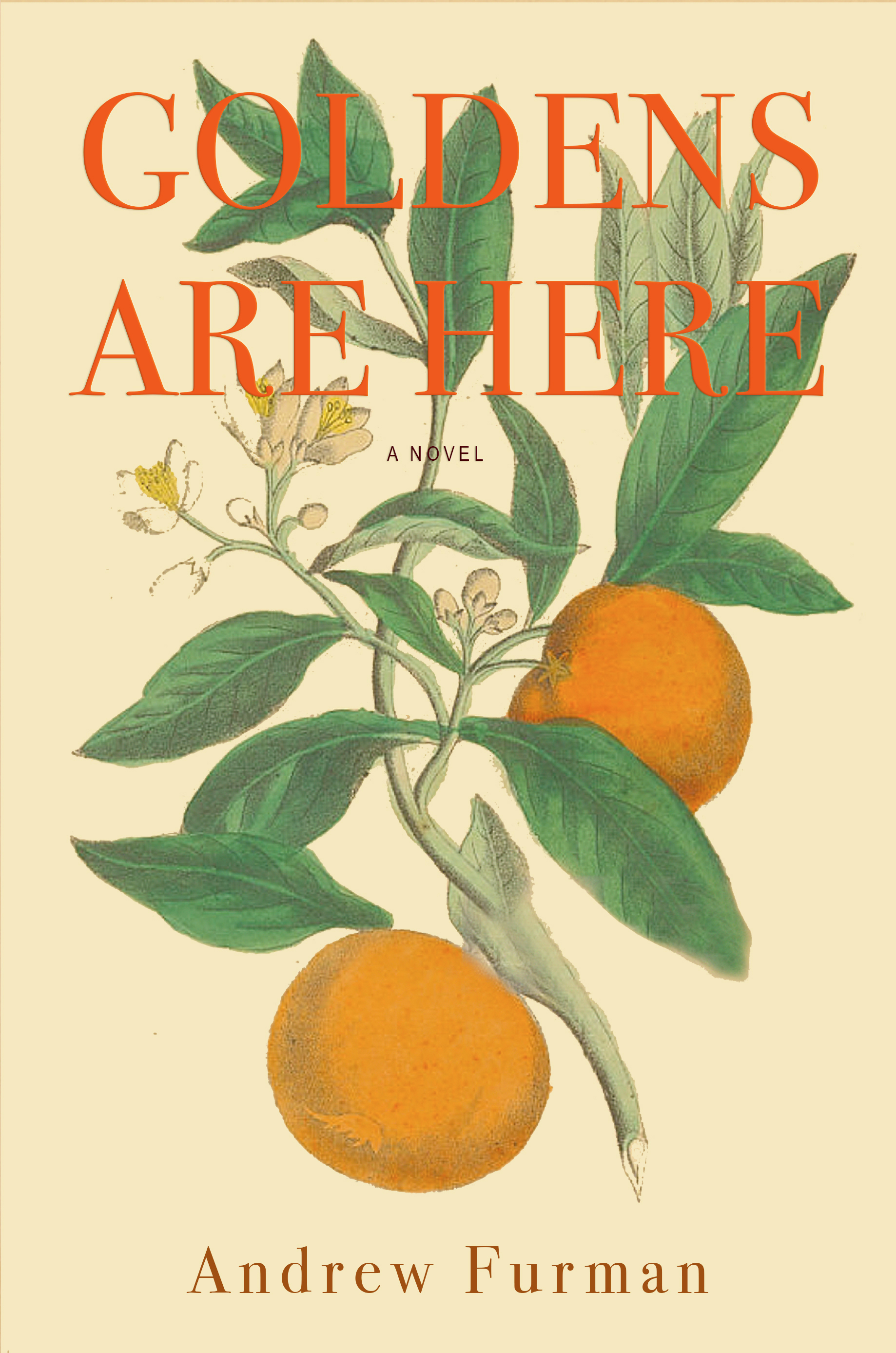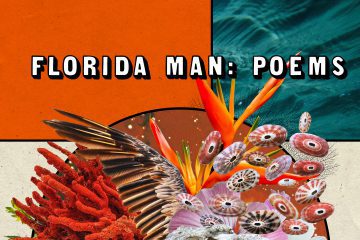Andrew Furman
It’s 1961, America’s been hooked on orange juice concentrate for a decade, and the Goldens are settling into their new life in Florida where they own 100 acres of choice orange groves. Formerly of Philadelphia, and Jews of the Ashkenazi tribe, the Goldens—Isaac, Melody, and their son, Eli—are out of place in there new Jim-Crow community where white Christians hold generational power. And while Isaac presents as the dominant group—“…didn’t look like a Jew at all, nothing like those Rosenbergs, hair practically blonde, and the President’s own true-blue American name even…”—Isaac is at odds with the more experienced farmers in his co-op who grow the same dependable sour orange stock from year to year, leaving “…it to those impeccably credentialed and salaried others to fool around with the genetics.” But Isaac believes in seeds and he thinks this delegation of seed experimentation to outsiders is why farmers have lost their autonomy and are experiencing a seismic shift in who controls the orange market. And while Isaac and his co-op struggle against Simply Citrus’ increasing control, the field workers are beginning to flex their collective strength in order to receive better pay, which Isaac sympathizes with. But Florida and the rest of America are evolving in other ways as well, and the Goldens find themselves at the center of much of it.
Andrew Furman’s novel, Goldens Are Here, is about small growth at the hesitant pace of local communities set against the forced changes that corporations and the federal government can create whether it be through advertisements defining consumer desire, radiating seeds for potentially advantageous mutations, the construction of I-95, the burgeoning Space Program at Cape Canaveral, or the growing power of the Civil Rights Movement joined with a concerted effort by the NAACP to organize African-American workers for their own benefit. The scale of the novel is ambitious, setting up a huge task for Furman to address these issues and themes in meaningful ways. But he succeeds by subtly and skillfully weaving them throughout his book, making Goldens Are Here an enjoyable and thought-provoking read.
The novel begins loosely with chapters that help set up the personal experiments that each of the main characters will undergo while, also, setting the story within the confines of Florida’s orange industry. In this way, Furman’s characters hook you on a personal level, and, at the same time, provide an engaging and lovingly-rendered crash-course on the history and science of orange growing, seed fertilizing, and the politics of co-op farming in the early ’60s at a time of nascent corporate control. Interestingly and deftly, Furman shows throughout his novel how racial and systemic injustices are exacerbated by corporations like Simply Citrus—the story’s fictional Minute Maid—that have the ability to drive down market prices and, thus, incentivize orange farmers to underpay workers and maintain systems of oppression as a form of economic survival in a vastly unequal market-based economy. The racism and societal inequalities would still have existed but the financial squeeze put on by corporations at a time when African-Americans were demanding better conditions and pay made the situation worse Furman seems to argue.
But the novel does even more than that as each of his main characters grows over the book’s yearlong timeline, enabling Furman to explore 1960’s Florida and its orange culture from multiple angles. Furman’s characters live, breathe, hurt, and love vibrantly on the page as you follow them on their journeys among the orange groves and around town as they discover what for each of them—like Isaac’s seed experimentations—seems an unlikely pursuit, which is the heart of Goldens Are Here.
The lifeblood of Furman’s novel is the seeming conviction that each of his main characters’ personal experiments are worthy pursuits because trial and error is how we learn to love one another more deeply. And it’s how we create community bonds. But it’s, also, how we break systems of oppression. It is an antidote to a corporatized life that aims to consolidate power, monocrop our foods, and drive racial and socio-economic wedges between citizens in order to make profits for a few. For Furman’s characters, these experiments with life reveal what they value while shedding light on the circumstances that influence them. Even Furman himself took a chance with such an ambitious novel, but Goldens Are Here astutely investigates one of America’s cultural epochs by peeling back the historical rind of who were and reveals who we still are deep-down as Americans.
Reviewer Bio: Mike Robbins is a second-year candidate at Iowa State’s Creative Writing and Environment program and the Managing Editor of Flyway. He is at work on a collection of short stories and teaches students about environmental justice.





